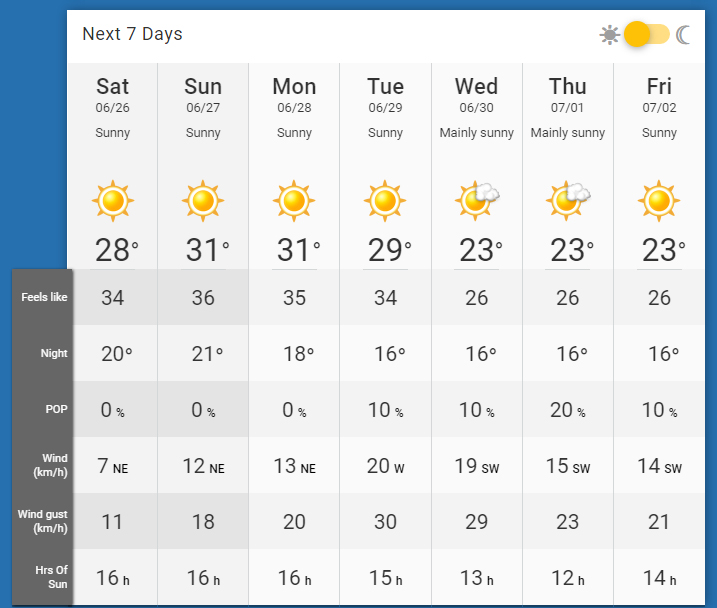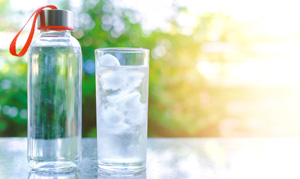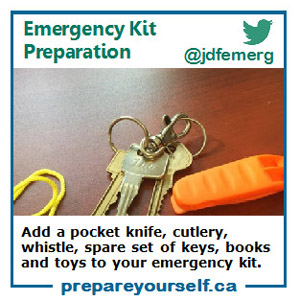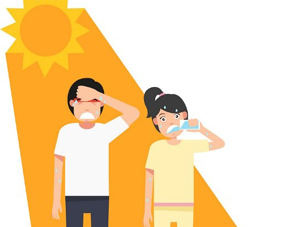
Friday June 25, 2021 | SOUTH VANCOUVER ISLAND, BC [Updated June 27 – the heat warning from Environment Canada does in fact continue, i.e. no change from Friday’s warning]
by Mary P Brooke, B.Sc., Editor | Island Social Trends
An unusually hot stretch of weather is starting today for the south Vancouver Island area (and most of BC) today, this weekend, and even into next week. Environment Canada says the heat wave could last until at least through Tuesday. Historical temperature records could be broken over the next few days for many parts of BC.
Temperatures (and ‘what it feels like’) are forecast to reach mid-30’s Celcius or or even higher in some parts of the island. The Weather Network for Langford shows Saturday June 26 through Tuesday June 29 being the hottest days.
Environment Canada’s weather warning:
- Threat: Daytime highs ranging from 29 to 38°C combined with overnight lows of 18 to 21°C. Humidex values during this period will reach the high 30’s to possibly the low 40’s.
- Locations: Metro Vancouver – Central, Metro Vancouver SW, Metro Vancouver – North Shore, Greater Victoria, Howe Sound, Whistler, Sunshine Coast, Southern Gulf Islands, East Vancouver Island, Inland Vancouver Island.
Tips to stay safe in this heat:
This weather warning comes with some ‘hot tips’ for staying cool and safe in the heat:
- Stay hydrated – drink water (before you feel thirsty); caffeine and alcohol reduce your hydration.
- Protect yourself from the sun – change your pattern to suit the conditions (including staying in the shade, staying outdoors for shorter periods of time to a maximum of 30 to 60 minutes, or staying or indoors); wear a hat and loose clothing; wear sunscreen (replenish repeatedly as required); make sure protection such as hats and patio umbrellas don’t have pinholes that unexpectedly allow UV rays through.
- Stay cool. Choose shade when outdoors. Indoors use fans, cross-room ventilation, and air conditioning.
- Check in on people – keep an eye out for the well-being of elderly people or those who are indoors for extended periods of time, especially if no air conditioning — just to see if they’re okay during a prolonged bout of heat.
- Do *not* leave people or pets in a car for *any* length of time; injuries and deaths do happen from such situations.
- Outdoor workers: should take regularly scheduled breaks in a cool place. | WorkSafeBC information on heat stress
Island Health says:
Today Island Health’s Dr Mike Benusic, Medical Health Officer (MHO) for central Vancouver Island held an information session with media about the heat.
First and foremost he emphasized staying hydrated and protecting yourself from the sun: “Stay cool!” Dr Benusic also encourages people to check-in on family members or neighbours who are elderly or any children or adults with pre-existing health conditions who may have trouble handling the heat.
If you are planning to spend the day actively outdoors, he recommends that be done in 30 to 60-minute periods of time (particularly for older, very young and people with pre-existing medical conditions), then taking a break indoors or in a cooler spot. “Short and multiple beats long stretches,” Dr Benusic said today.
Dr Benusic says sunscreen should be at a level of “at least 30 SPF or even 40”, and should be applied certainly more than once throughout a day of activity or various periods outdoors.
And basic stuff, like keeping some cross-ventilation happening in your home with windows open but with blinds or drapes closed to keep out direct sunshine. This will also help make the air cooler at night for sleeping. Dr Benusic says that outdoor temperatures above 29°C in the daytime and not dropping below 16°C at night are considered dangerous for health.
Heat safety:
The Island Health Heat Safety page says the symptoms of heat-related illness can range from mild to severe, including:

- Pale, cool, moist skin
- Heavy sweating
- Muscle cramps
- Rash
- Swelling, especially hands and feet
- Fatigue and weakness
- Lightheadedness and/or fainting
- Headache
- Nausea and/or vomiting
More severe symptoms – including high fever, hallucinations, seizures and unconsciousness – require urgent medical attention. Call 911, move to a cool place, and cool the person with water and fanning.
Heat stroke:
Heat stroke is a dangerous health condition. Watch for the symptoms of heat illness: dizziness/fainting; nausea/vomiting; rapid breathing and heartbeat; extreme thirst; decreased urination with unusually dark urine.
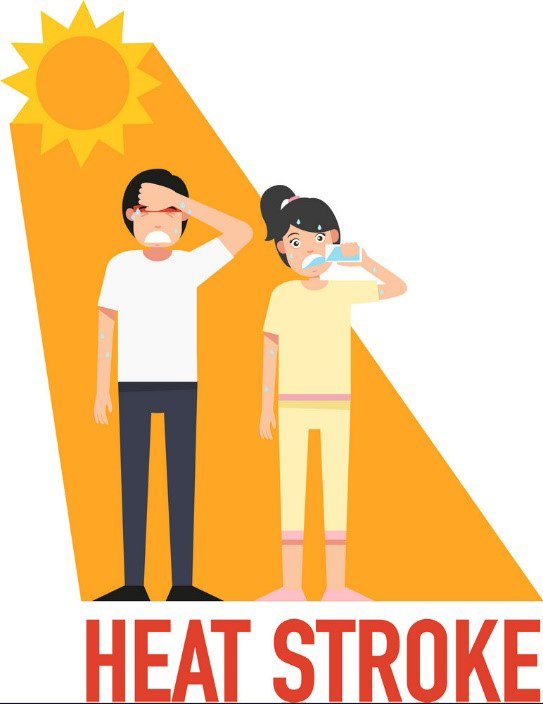
- The Mayo Clinic describes heatstroke is a condition caused by your body overheating, usually as a result of prolonged exposure to or physical exertion in high temperatures. This most serious form of heat injury, heatstroke, can occur if your body temperature rises to 104°F (40°C) or higher.
- Heatstroke requires emergency treatment. Untreated heatstroke can quickly damage your brain, heart, kidneys and muscles. The damage worsens the longer treatment is delayed, increasing your risk of serious complications or death.
- After experiencing heat stroke once, your body can be permanently impacted.
If you think a person may be experiencing heatstroke, seek immediate medical help. Call 911 or your local emergency services number.
Take immediate action to cool the overheated person while waiting for emergency treatment:
- Get the person into shade or indoors.
- Remove excess clothing.
- Cool the person with whatever means available — put in a cool tub of water or a cool shower, spray with a garden hose, sponge with cool water, fan while misting with cool water, or place ice packs or cold, wet towels on the person’s head, neck, armpits and groin.
===== WEATHER LINKS:
- The Weather Network current 7-day forecasts: Langford | Colwood | Sooke | Metchosin | Saanich | Victoria
- Juan de Fuca Emergency Program – including weather tips (on Twitter)
===== Your Comments: To send a comment on any article within Island Social Trends, write to: news@islandsocialtrends.com



